A Guide To Raising Testosterone Naturally
In the past decades, testosterone levels in men have declined drastically. The reason? It seems like everything. More toxic environments, blue light exposure, cheap dopamine access through media and porn, not to mention diet and lifestyle.
Yet while this occurs, testosterone is barely monitored in the medical community. Possibly due to sport-related stigmas against testosterone therapy or the fact T is classified as a schedule 1 drug if used without a prescription. The point is, one of the most important health markers for men is also one of the most poorly addressed.
How bad is this? Testosterone can be thought of as the lifeblood of male health and performance.
Suboptimal testosterone can manifest in:
- Depression
- Diabetes and Insulin Resistance
- Metabolic Dysfunction
- Infertility
- Weight gain
- Chronic Inflammation
- Poor exercise recovery
I’ve heard some experts suggest that if you have type 2 diabetes, you should absolutely be monitoring your testosterone. The hormone is so crucial, yet it is also massively overlooked. Why is that?
The Stigma of Testosterone
There seems to be a stigma surrounding the topic of testosterone. This could be an extension of the paranoia in athletic circles. Testosterone is a restricted substance, associated with the terms “steroid” and Performance Enhancing Drug. Hell, taking non-prescription testosterone is a felony crime in the United States, independent from participation in sports.
In the medical world, testosterone function is important enough to warrant regular monitoring. It should absolutely be a component of yearly physicals, and MDs should be using questions to actively monitor for hypogonadism in their patients, at any age. Should be.
The reality is there is no standard whatsoever. Hypogonadism, aka suboptimal testosterone function, has no official definition. There is no established standard of care. It’s overlooked.
Some estimates suggest 13 million men suffer from suboptimal testosterone in the U.S. alone. Despite this, very few will seek diagnosis, and less will address treatment. The pervasive idea is that low T is a fact of aging, and men also don’t want to admit to any difficulties in the bedroom.
Because guys associate testosterone purely with sexual performance, I think we often sweep problems under the rug. No one wants to see themselves as impotent, even to an extent. But the reality is these signs and declines are also raising your risk of all manner of disease, ranging from diabetes to heart disease.
Unfortunately, no one is going to check for you, but you can learn the signs and work on your lifestyle to maximize your hormones.
The Benefits Of Testosterone
Testosterone is a factor in every facet of men’s health, and many in women’s. For this reason, seeing the signs of testosterone deficiency is both easy and difficult. Easy because there are so many. Difficult because you might not realize your issues are about testosterone.
Though most people think of testosterone with regard to fitness and sexual performance, you can have a high fitness level with terrible testosterone. Furthermore, though libido will suffer at least a little bit, often low T manifests in other issues such as depression, brain fog, fatigue, lethargy, and chronic inflammation.
Sound familiar? All of these are growing problems in the modern population. According to Jay Campbell, author of The Testosterone Optimization Therapy Bible, as many as 40% of men have suboptimal testosterone, I think it’s safe to say this should be one of the first things you check.
Thankfully, the purpose of this guide is to address lifestyle changes that can improve your testosterone. Even if you already have good levels, these habits and tactics will help improve and protect your hormones as you age. Basically, you don’t need to know for certain in order to use this guide, but it’s still good to get testing in case you need actual hormone therapy.
We’ve already talked about the issues of having low testosterone, but how about the benefits of having good testosterone?
Testosterone Decreases Visceral Body Fat
Testosterone plays a crucial role in the insulin signaling pathway. Good testosterone levels help maintain insulin sensitivity which in turn prevents the accumulation of visceral adipose tissue, aka body fat. The higher your free testosterone (the bioavailable form) the better your body can regulate insulin and prevent fat storage.
Conversely, higher body fat actually lowers your testosterone. Aromatase is an enzyme the converts testosterone into estrogen. Obesity is correlated with increased aromatase activity. Which came first, testosterone depletion or obesity, is anyone’s guess. Either way, there is a direct relationship between testosterone and obesity.
Testosterone Improves & Protects Your Heart
Despite rumors (largely from the anabolic steroid world) that testosterone is bad for your heart, nothing could be further from the truth. A large body of data shows that optimal testosterone levels are cardio-protective and that low testosterone is associated with an increased risk of heart disease.
For those who are interested, the main study used to accuse testosterone was done on 65-year-old men with major mobility issues. If your best data associating any factor with disease is in a population that is old and can barely move, you’ve got a problem with your data.
Low testosterone is well linked to the risk of early death in men. High T, not so much.
Testosterone Empowers Your Brain
This is where things get really interesting. It seems like left and right people are falling into PTSD, anxiety, and chronic disease. I myself dealt with panic attacks as part of a health crash I suffered in 2017.
Guess what dudes. Testosterone plays a major role in the fear, memory, and emotion centers of the brain. It regulates the Amygdala, which is responsible for generating emotion responses and considered a key piece of the fear response. It also plays a role in the pre-frontal cortex, thought to be the part of the brain that allows us more conscious control and willpower, and separates us from animals.
Without good testosterone, you’re more prone to negative emotion as well as willpower draughts. Have anxiety or depression? Brain fog? Are you lethargic, tired all the time, and have difficulty making decisions? Testosterone can help all of that.
Finally, testosterone also plays a major part in the presence of dopamine in the brain. Dopamine is the “reward” neurochemical, and everyone has their way of chasing this neurotransmitter “high.” Do you love winning a basketball game? Or crushing a workout? That addictive feeling is from dopamine. When expressed in unhealthy ways, this is also the feeling that leads to video games or porn addiction. There may be a role such things play in the low testosterone of modern men, but more on that later.
The point is, good testosterone helps regulate and promote good dopamine levels. Addictive tendencies like social media, phones, and games all wear on this cycle, but optimizing your T is a stalwart defense against a world of addictive distractions.
Testosterone Improves Muscle Gain
It goes without saying that testosterone helps you gain muscle. This is why the hormone has become vilified due to the unfair advantage in sports. Still, for our purposes, this is one of many great benefits of optimal testosterone and one of the keys to improving your levels using lifestyle.
And this is where we start to get into the meat of this guide.
My Opinion on Hormone Therapy
I am not against testosterone replacement therapy. I think it has been stigmatized, but should be considered as much as thyroid medication, insulin, cortisol, or any other widely accepted hormone therapy.
Testosterone makes your health optimal, and even if you are running low due to aging (which is often a copout in my opinion) you should do whatever you need to maintain optimal levels.
Now, with that said, many are experiencing low T far before they could consider themselves to be “aging.” With my health crash at age 22, I suffered all the signs of suboptimal testosterone for 2 years.
The point of this article is that we shouldn’t have this problem of low T in the first place. Testosterone therapy is something I support, but only after addressing your lifestyle and health. If you are under 50, and you have low T, it’s not aging. It’s the world you live in.
From work schedules to activity to estrogenic compounds and even the lights in our buildings, there are tons of factors that lead to the declining testosterone of our population. Address that first.
Because once you’re taking exogenous hormones, no matter how safe, you may need them for the rest of your life. Especially in young men, your body will stop making its own testosterone once you start using a cream or injection.
I also believe the tactics for optimizing testosterone naturally are also those that can optimize the entirety of our health. There’s a reason ancestral wisdom just keeps working: We evolved to live optimally under certain biological conditions. The more we can replicate those conditions, the better our lives can be.
So here’s how to optimize your testosterone as best you can without actually taking T.
Eat Like A Caveman: Nutrition & Supplements For Testosterone
Seems like every 10 seconds, a new miracle testosterone supplement comes out. Yet these products typically rely on adaptogenic herbs. What’s the issue? Not one herb has been shown to increase testosterone long term. Sure, many, such as ashwagandha, are great for enhancing libido and addressing the balance of the endocrine system, but they don’t actually improve testosterone.
Certain nutrients offer a different story. Zinc, magnesium, Vitamin D, and creatine have all been shown to reliably influence testosterone levels. Let’s not forget about high-quality saturated fats either. If you still think cholesterol is bad for you, I’d ask you if you realize cholesterol is the literal building block for your hormones. Our bodies are literally made of fats. Lipid biology is the fact of life down to the cellular level.
Now, where can we find most of these nutrients in our diet? High-quality meat. It’s no secret that I think red meat is a superfood. Despite the stigmas over the last 100 years, health has only declined with the trend away from red meat. In fact, the biggest increase in consumption has been oxidized vegetable oils, which are promoted as an alternative to animal fat. We could rabbit hole here for a while, but case in point: red meat is a source of all the essential nutrients for testosterone in their most bioavailable forms.
When it comes to diet, I suggest active men consume 1 gram of protein per pound of body weight per day, ideally from grass-fed and finished red meat. I also generally recommend lower-carb diets that rely primarily on animal fat. In my opinion, the healthiest source is suet, which is kidney fat. High in stearic acid, this is a great source for boosting hormones. However suet can be hard to source, and unpalatable for some. (./)
In order from best to worst (but all great) these are my suggestions for dietary fat:
- Grass-fed beef suet
- Grass-fed beef fat
- Grass-fed beef tallow
- Grass-fed ghee
- Grass-fed butter if tolerated
- Organic extra virgin unrefined coconut oil
- Avocados
- Avocado oil (only from the brand primal kitchen. Other brands are cut with oxidized canola oil)
If you follow the paleo movement, you may have questions about the need to go with grass-fed. After all, current research shows no significant nutrient differences between grass-fed animal products and conventionally raised.
Firstly, grass-fed and finished is far better for the environment. I wrote a piece on this topic also available here at The Ready State called: Does Covid-19 Show Us How Meat Can Save The World?
But secondarily, fat is an organ and one of its roles is to store toxins. While conventionally raised meat may have similar nutrient profiles to grass-fed, the fat is different. Conventionally raised animals are exposed to many more toxins that end up in their fat. If you are trying to stick to a budget, you can definitely get your lean meat from conventional sources. But source fat from grass-fed and finished. Always
Thankfully, these are also some of the cheapest products and if you know a good butcher, can often be sourced free. Just ask for the trimmings.
The Ready State is partnered with one of my favorite regenerative agriculture farms: Belcampo. I cannot recommend their work more, and CEO Anya Fernald is also a prominent chef (former critic on the food network.) Need recipe ideas? Follow her (she’s also a big fan of cooking with suet.)
Eat Organ Meat
Now, any conversation about nutrients and meat should absolutely consider organs. Organ meats are one of the single greatest things you can eat to support your body, but they have fallen out of popular dining over the last century.
This is incredibly unfortunate. Organ meats have some of the best nutrient profiles available in all food. The liver is literally the most nutrient-dense food known to man. On top of this, all the nutrients are in their most bioavailable forms, and there are no anti-nutrients to block absorption.
If there were one animal product I could convince vegans to eat, it would be liver. That’s how powerful it is.
When it comes to supporting testosterone, organ meats offer another distinct advantage. Isotope studies imply that proteins consumed in your diet preferentially travel to and support the same proteins in your body. Translation: Eating and organ will support the same organ in you.
So not only do these foods contain amazing amounts of all the necessary testosterone supporting nutrients but by eating certain organ meats, you can directly support your own male endocrine system.
What am I saying? Eat balls. Yeah.
One of the best foods you can eat to support your own T levels is beef oysters. Now before you start gagging, make sure there’s no one near you from Montana or Wyoming. Even in the modern-day, rocky mountain oysters are a delicacy in many states.
Not to worry though. As much as I promote eating fresh organ meats, you can access offal via supplements.
OR Try Desiccated Organ Supplements
The number one supplements I promote are desiccated organ supplements. These are freeze-dried organ meats that have been capsuled in a pill form. Though cooking liver is definitely cheaper, it’s much harder to find other organ meats like spleen, pancreas, etc.
For the purpose of optimizing testosterone, there is no better supplement than the Paleo Valley Grass Fed Organ Complex. This desiccated organ supplement contains heart, liver, and kidney. It’s like a tailored nutrient package designed for testosterone optimization.
Not convinced this could work? Read the reviews on amazon. I’ve used all manner of supplements over the years, and I’ve never seen more consistent success stories than those of desiccated organs.
For Vegetarians & Vegans
As I’ve stated already, I think meat is a superfood. I think the stigmas about meat are based on exaggeration and poor research. The fact is that nutrients in meat are far more bioavailable than those from plants.
If you include organ meats and eat nose-to-tail, you can get every nutrient a human can need without ever eating plants. I also believe that the true culprits behind diet-related disease are the chemicals and the oxidized vegetable oils that have been added to our diets in the last 100 years. Vegan, omnivore, or carnivore, your best nutrition move is still just to avoid ultra-processed food.
But I know the popular “war” in nutrition is between vegan/vegetarians and omnivores/meat-eaters. This is in my opinion very sad. We are overall on the same side. We want to promote diets that help people be healthier. Most of us get benefits from these diets.
However, if you are trying to optimize testosterone but you are vegetarian or vegan, I must say I truly believe your diet is very lacking in this endeavor. You consume a diet that has shortcomings with nearly every primary nutrient that supports testosterone.
Vitamin D requires Vitamin K2 which humans cannot create on their own. The main dietary source of Vit K2 is animals. Plants only contain Vitamin K1 which we cannot convert.
Furthermore, creatine, zinc, and vitamin D are all abundant in animal foods but exceedingly rare or nonexistent in plant foods. So, I’m not here to convince you to stop being vegan or vegetarian.
But if you have symptoms of low T. Supplement with Creatine. Supplement with Zinc. Supplement with Vitamin K2. And really learn all the nutrients that are suboptimal on a vegan diet and make sure you are supplementing.
I try to be very accommodating of the views of others, but as someone who has tried to pursue good health with as little bias as possible, I do not believe vegan diets are optimal for humans. Period. I respect the adherence to such diets for moral reasons, but in terms of health, you need to supplement because there are shortcomings.
Go Outside As Often As Possible, As Naked As Possible
One of the nutrients we mentioned in the last section is Vitamin D. While vitamin D supplementation is highly promoted, you need to be using magnesium and vitamin K2 alongside it to make sure it works.
However, there is a source we were made for and nearly always have access to: The sun.
Sunlight is the number one way to optimize vitamin D, and by extension testosterone. Something else that’s interesting: not all parts of your body convert sunlight to vitamin D equally. Certain areas of your skin convert at a higher rate.
The most significant being your sex organs.
Bet you didn’t expect that, but it makes sense. I mean, your balls are one of the most exposed hormone-producing organs on your body. Give them sunlight and they’ll give you both vitamin D and testosterone.
So this is part one of my suggestion to get outside as naked as possible, as often as possible. At a minimum, go out for 20 minutes a day nude, provided you have high fences or a very progressive neighborhood.
I also suggest spending as much time outdoors as you can while doing other activities. Work from home? Work outside. Your WiFi surely reaches your backyard. As I type this, I’m standing behind my car parked outside with my laptop resting on my car trunk. I’ve got shorts on, no shoes, and no shirt. I’ll be out here for most of the day, only going indoors to cook.
Vitamin D is a great benefit of the outdoors. The second benefit is grounding. We are electrochemical creatures. Though the majority of our medicine focuses on the chemical side, electricity is a key component of our health.
When you walk on the earth barefoot (known as grounding or earthing,) you offload electrical charge from your body into the earth. Rubber-soled footwear prevents this. The result? Grounding/earthing increases cardiac function and has been well established to lower inflammation.
This is not a direct producer of testosterone, but stress and inflammation absolutely factor into your hormones. Cortisol, the stress hormone, blunts testosterone production. Earthing has been shown to have a significant effect lowering cortisol, so there you have it.
While you are outside, opt for barefoot. Dr. Starrett is and has been a huge fan of this for years for mechanical and mobility reasons, but you’ll also lower your stress levels and inflammation when you do this.
Not sure your feet are up to the task? Moccasins and certain specialty footwear allow you to ground without being totally barefoot. My personal go-to’s are earthrunners.
Lift Heavy, Sprint, & Don’t Skip Leg Day
While diet and the outdoors can help provide the building blocks for testosterone, they work best when combined with an active lifestyle. In fact, studies on zinc and magnesium show these nutrients only significantly improve testosterone in active individuals.
There is a dark side though. Overtraining is one of the fastest ways to burn out your testosterone, and Crossfit athletes (such as myself) often display some of the worst T levels.
Training can be a complex topic. Many people love to work out, and I am all for daily gym sessions fueled by passion and fun. However, when it comes to health and hormones, I like to show people the minimum effective dose first.
Testosterone levels benefit from a small handful of specific exercise types: High-intensity interval training, lifting heavy things, and leg day.
Your legs create the most testosterone in response to exercise. This may be why leg strength most correlates with better health outcomes in aging. On top of this, sprints as short as 6 seconds (high-intensity interval training) have a profound effect on T levels, as does heavy weightlifting.
So, for a minimum effective dose training protocol, I advise two workouts a week, both focused on legs. One of these workouts will be in the form of sprints, the other in the form of barbell squats.
Workout 1: Sprint Day
4 rounds of sprints with 90 seconds to 2 minutes of rest between rounds. Sprint for 400 meters or less, and rest between sets. If it feels too easy, increase up to 8 sprints.
This training style can be adapted to an assault bike, rower, or anything that lets you fight for intensity for an interval. Aim for 60 seconds of work with 90 seconds to 2 minutes of rest.
Workout 2: Big Lifting
4 to 6 rounds of barbell back squats. Aim for as heavy as you can for 5 to 10 reps, or work towards a 1 rep max. 2 to 5 minutes of rest in between sets.
The purpose of large rest breaks is to focus as much of your training as possible on the creatine phosphate system in your body. This system is one of the 3 energy systems: anaerobic, aerobic, and creatine/phosphate. It is also the most correlated with testosterone improvements.
This would be a minimum plan for solely focusing on testosterone via working out. However, I personally like doing bench press or upper bodywork for my heavy lifting and adding a third workout to the week that focuses on leg strength. This might mean 30 minutes to an hour of more body-builder style training, with lots of different exercises all focused on legs.
The point is that you can definitely work out more than just twice a week if it’s your fancy. Just know that lifting, sprints, and legs are the keystones of exercise improving testosterone.
Mind Plastics, Chemicals, and Estrogenic Compounds
What do plastic water bottles, laundry detergent, and tapwater have in common? Endocrine disruptors. Also known as estrogenic compounds, many of the chemicals in our everyday environment have a significant effect on increasing estrogen and lowering testosterone.
Some examples? Atrazine is commonly used on corn products and also contaminates tap water. This compound is infamous for causing male frogs to become female, yet we ourselves are commonly exposed.
I could probably write a whole article on the subject, and lord knows whole books have been dedicated to it.
Detergents and Household Products
However, I can still give you a broad view of how to best avoid these toxins. For one thing, you can safely assume endocrine disruptors are inside any non-organic or standard cleaning products you use. This goes for all detergents, fragrances, paint, etc. When possible, go organic. This can be quite difficult, but Wellness Mama is a great resource both for clean products and DIY tips.
F*** Plastic Bottles
Next, prioritize good quality drinking water that is not in plastic bottles. Plastics drinking bottles may be one of the most significant exposures to endocrine disruptors we have. So many products are bottled in thin plastic that degrades into the very liquid it contains.
I personally prioritize glass bottles or cans. I’m a big fan of San Pellegrino and liquid death mountain water. Buying canned or glass bottled water can be expensive if it’s your exclusive source of H2O, but you can also use large glass or hard plastic (not ideal but way better than thin bottles) to store gallons of water inexpensively.
Upgrade Your H2O
As far as the water itself? Go with reverse osmosis water at the very least. This process helps remove endocrine disruptors. It’s not the best water in the world from an electrolyte standpoint, but that’s a topic for another time and one that can be more difficult to address.
You can also look at installing a high-quality water filter in your home. Though you might not drink your tap water, skin exposure does bring you in contact with endocrine disruptors. Your skin is like a mouth, and this has an effect.
At the lower end, you can use shower filters like this guy to lower your exposure. At the higher end, you can install a total house water filtration system. It’s pricey, but if you own your home, it can be a great way to ensure a low-toxin environment in every aspect of your water usage.
Buy Organic
Finally, when you can, go organic with your food, and avoid ultra-processed food. I feel like I’ve been writing on this topic ad nauseam. The past 3 articles I’ve done for The Ready State all condemn ultra-processed foods and high PUFA vegetable oils.
Those focus more on the inflammation-inducing effects, but another big piece of the puzzle is the pesticides and chemicals.
Non-organic foods are exposed to a host of endocrine disruptors via pesticides and fertilizers. This stuff accumulates in the food supply, and then in us. As you increase your wealth, I believe you should prioritize food quality first before anything else.
Before you buy your first home, reach the point where everything you eat is organic, grass-fed, and grass-finished. If that means fewer fun purchases, do it. It’s not that much more expensive than inorganic produce, and you’ll save yourself and your potential or real family thousands in medical bills.
And considering the key role testosterone plays in brain function, you’ll probably INCREASE your income by having a better brain that isn’t handicapped by the estrogenic compounds in your food supply.
Address Your Cheap Dopamine Addictions: Porn, Social Media, Video Games, Etc.
Testosterone is highly involved with your dopamine neurotransmitter. This neurochemical creates a sense of achievement and is referred to as the reward chemical. Naturally, it secretes in larger amounts when you do something that feels good, such as winning a game or having sex.
Though technically activities like watching porn have been shown to increase salivary testosterone in the short run, the symptoms of porn addiction mirror those of low T. I for one will admit to having watched porn throughout most of my adult life. At age 25, that industry has been readily available for most of the time I’ve been alive.
But I cannot say it has ever made me feel more virile.
I believe that cheap and too-easily accessible dopamine triggers have a harmful effect on testosterone. If you are constantly getting a low-grade dopamine hit, you are likely burning through your body’s resources to create the neurochemical, not to mention becoming less interested in bigger achievements.
For this and many other reasons, I recommend a serious examination of every habit you have for alleviating boredom and getting that dopamine hit.
This can be monitoring the likes on your social media page, playing video games, watching tv, etc. Anything that gives you that good feeling. In small amounts, these things could be beneficial.
But often we use these to alleviate a sense of boredom that I believe is actually necessary for our health and our mind.
My recommendation? Go as distraction-free as possible. Actively monitor for activities you use for procrastination. Usually, the cheapest and most useless things will rise to the top: excessive comment scrolling, reading clickbait news stories.
What we want instead is to actually feel bored, and let that boredom fuel proactive or “real” pursuits. In my life, I recently sold both my gamin console and television. Why? Because even though I love games, I often play to alleviate boredom and burnout rather than for the love of the game.
I am also very close to purchasing a text-capable flip phone and letting go of my smart device. Sound extreme? Even I remember what it was like not to have a smartphone, and you know what? Life didn’t feel better after I got one. Hell, I actually remember noticing how much more distracted I was when the internet and 50 apps were always at the touch of a finger.
This section is probably the least directly linked to testosterone, but I think these low-value distractions are a real part of the hormone pandemic. Levels of testosterone have been lowering for a long time, long before the internet, but we also might just not know the effects.
Someday perhaps I will address a whole article on this topic. For now though, please consider the things in your life that might be hindering your dopamine. What things do you do when bored, that might be better not done? Porn, phone games, other video games, etc. How can you create a life where boredom results in productivity, such as reading a book? Or seeking out something to do with friends?
It’s a contemplation I believe is paramount for the health of our mind, body, and spirit.
Conclusion
Boom. There you have it. Testosterone is the lifeblood of male health, but it is at a rock bottom low among many of our modern men.
This is due to a steadily more toxic environment, as well as factors such as cheap dopamine thrills and less physical activity. It also doesn’t help that the medical community has no standard operating procedure for actively monitoring or addressing low T.
So, while I support hormone therapy as needed, we should all work hard to optimize our lifestyle. Young or old, there are factors of modern life that stand at odds with your hormone function. Address them first.
Eat food high in essential building blocks for testosterone. Activate those building blocks by working out with sprints, heavy lifting, and a focus on legs, and then avoid habits and environmental compounds that lower your testosterone production.
For further resources, I strongly recommend the work of Jay Campbell, author of The Testosterone Optimization Therapy Bible. Jay’s work focuses on actual hormone therapy, but it is also one of the greatest resources for understanding how and why testosterone is falling in our day and age.
Treat testosterone with the awareness and respect it’s due, and you will have a much better life. With that said, thank you for reading and I hope this helps you further improve your Ready State.

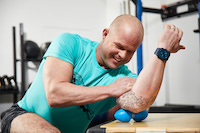
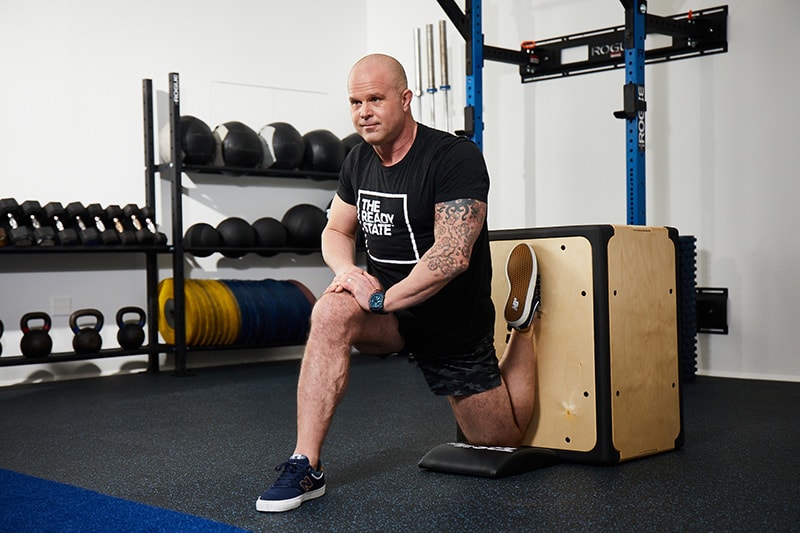

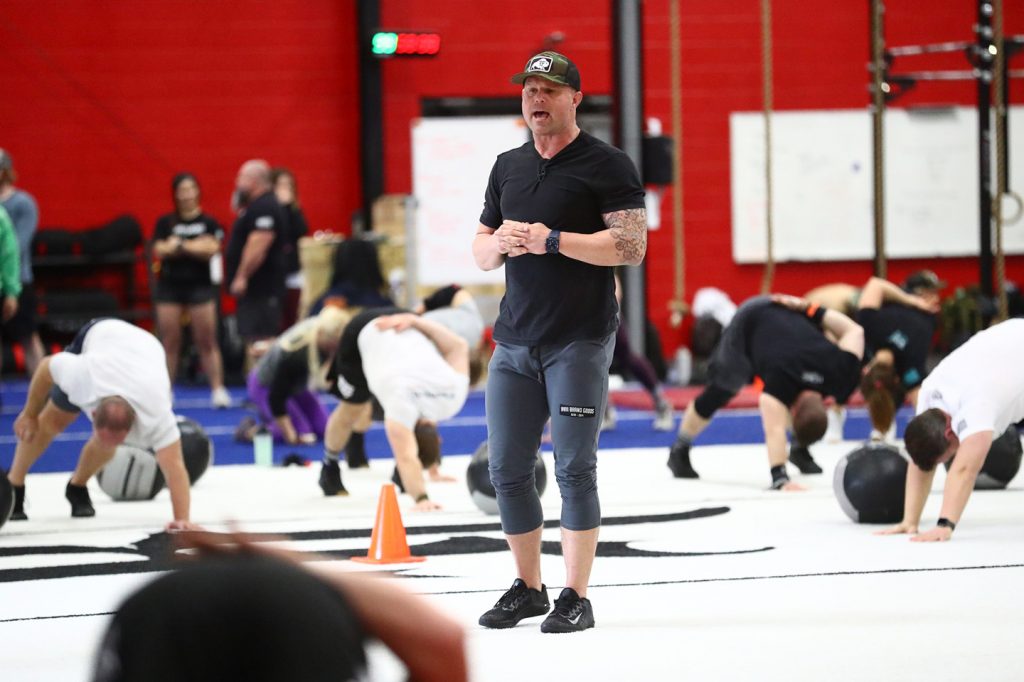

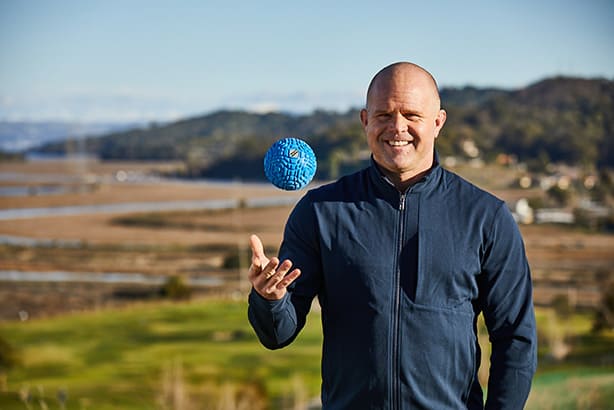
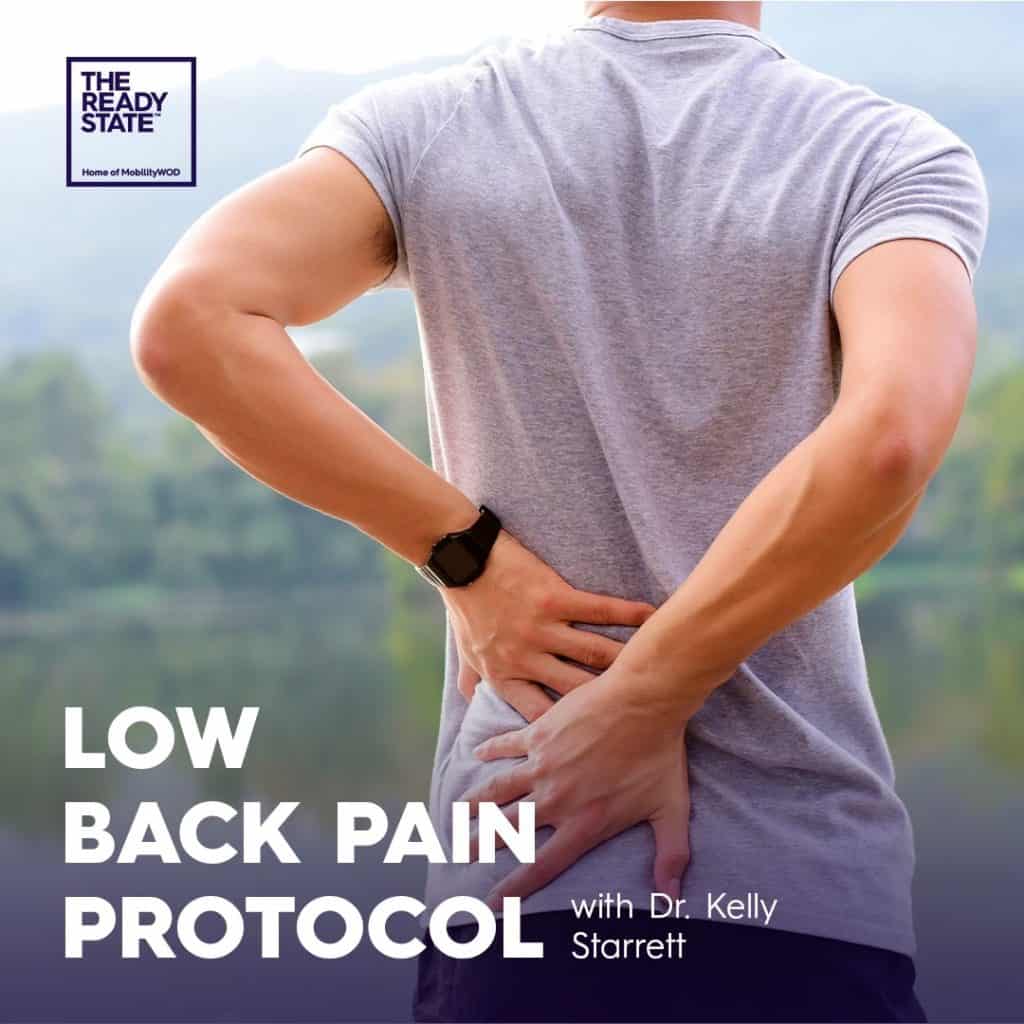


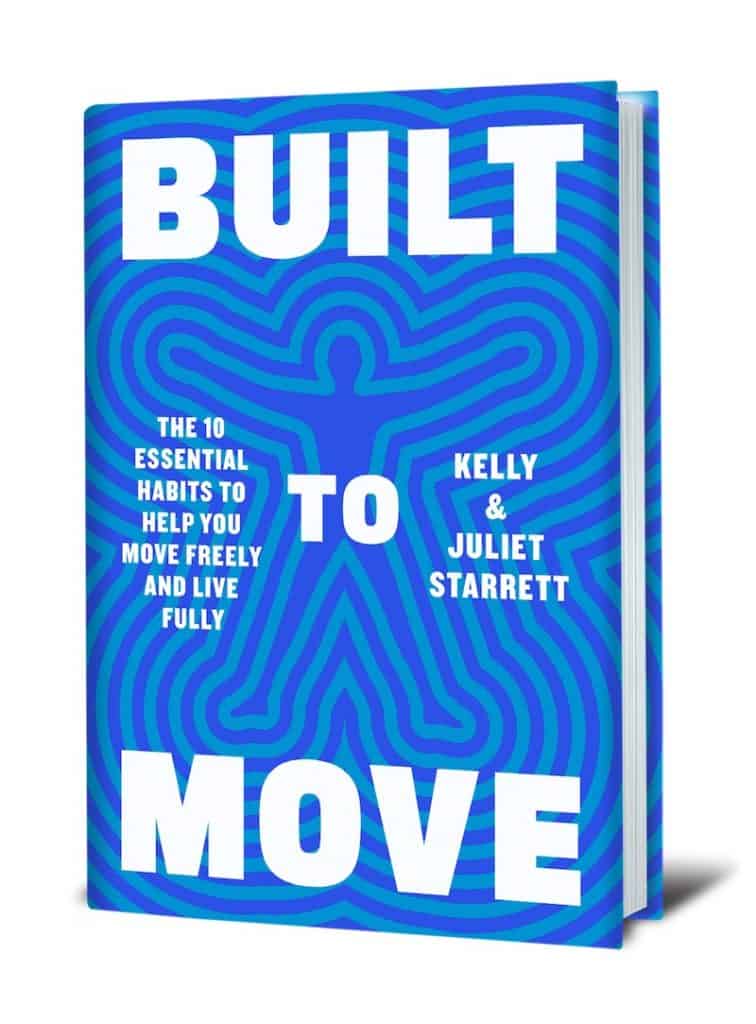


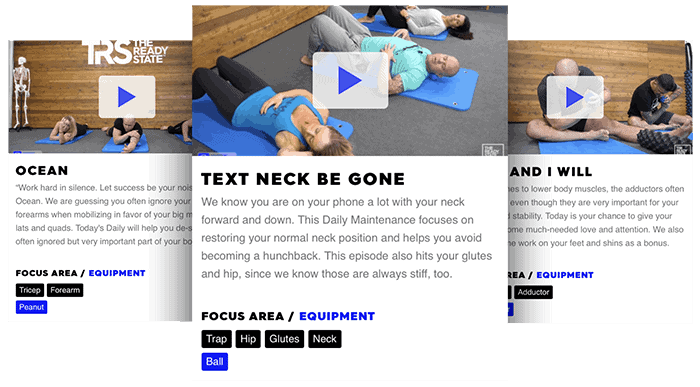






Sick article. I’m looking to more regularly test my Free T at home. Is there a good, reliable company to test this?
This is great Keenan, thank you. I learned a lot. It’s true that T is not addressed medically, but on KNBR and KCBS and others, there are constant ads for products to boost T, usually for the purpose of performance. So I do hear it there. Also, great point on boredom! I find that extended moments of boredom are a great way for me to recharge and become more clear about next steps. (I’m female, will share this with my husband.)